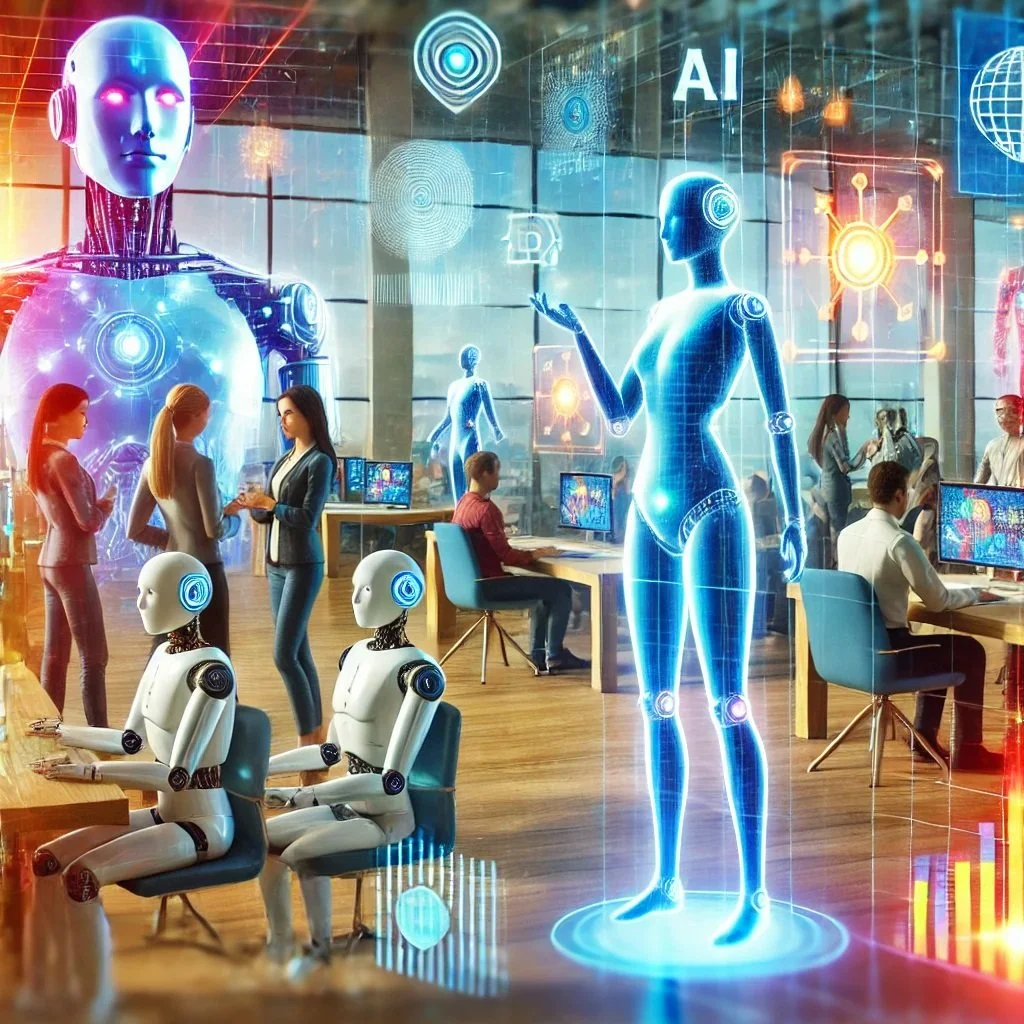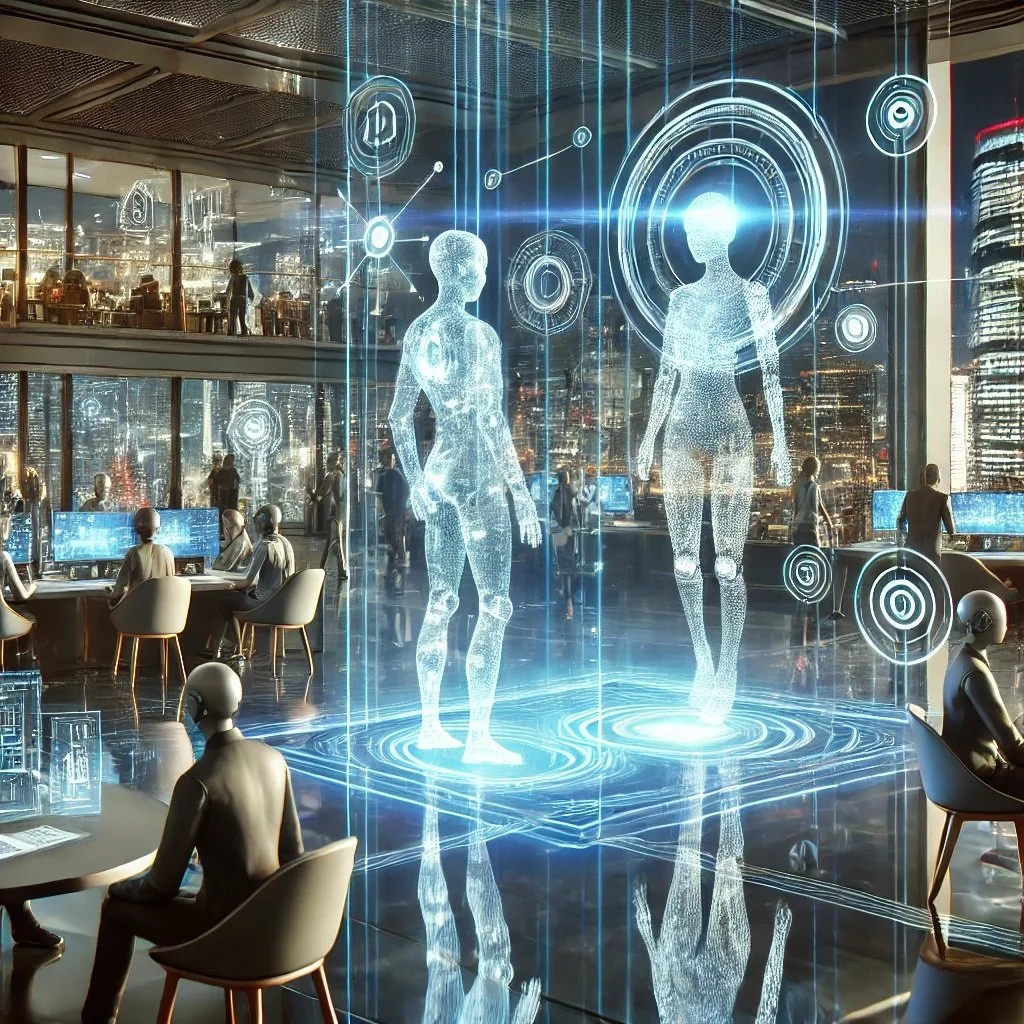AI Agents: What They Are, How They Work, and What They Mean for Our Future
Introduction
In the rapidly evolving landscape of artificial intelligence, one concept is quickly becoming central to its application: AI agents. These autonomous systems are not just tools but dynamic actors capable of perceiving their environment, making decisions, and taking actions to achieve specific goals. From simplifying mundane tasks to revolutionizing entire industries, AI agents are poised to play a significant role in shaping our future.
But what exactly is an AI agent? How are they created, what challenges do they pose, and how soon will they integrate into our daily lives? In this article we will dig in and find out more…
What Is an AI Agent?
An AI agent is a system that perceives its environment through sensors, processes information, and takes actions to achieve its objectives. Unlike traditional software programs, which require explicit instructions for every task, AI agents are designed to operate autonomously. They can adapt to changes, learn from data, and interact with humans and other systems to perform complex tasks.
In simpler terms, an AI agent is like an intelligent assistant that can think, learn, and act on your behalf, though often faster and more accurately than a human.
What Do AI Agents Do?
AI agents can perform a wide range of tasks, including:
Customer Service: Chatbots powered by AI agents can resolve customer queries, make recommendations, and provide 24/7 support.
Healthcare: AI agents analyse medical data, assist in diagnostics, and even suggest treatment plans.
Finance: They predict stock trends, manage portfolios, and detect fraudulent transactions.
Personal Assistance: Virtual assistants like Siri, Alexa, and Google Assistant are rudimentary examples of AI agents. Advanced agents could eventually manage your schedule, finances, and even household tasks autonomously.
Autonomous Systems: Self-driving cars and drones are examples of physical AI agents capable of navigating the world.
Such agents can be deployed in nearly every sector, enabling businesses to enhance efficiency, reduce costs, and scale operations.
How Are AI Agents Built or Trained?
The creation of an AI agent involves several steps:
Defining Objectives: Developers start by identifying the tasks the AI agent needs to perform and the outcomes it should achieve.
Data Collection and Preparation: Training requires vast amounts of high-quality data relevant to the agent's tasks. This data must be cleaned and labelled for the AI to understand patterns.
Model Training: Using machine learning algorithms, the AI agent is trained to recognize patterns and make decisions based on the data provided.
Reinforcement Learning: Some AI agents improve their performance through trial and error, receiving rewards for correct actions and penalties for mistakes.
Integration and Testing: Once trained, the agent is tested in real-world scenarios and fine-tuned for optimal performance.
Continuous Learning: AI agents often use feedback to learn and adapt over time.
Building an AI agent requires collaboration across several domains, including data science, programming, ethics, and user experience design.
The Ethical Challenges of AI Agents
While AI agents promise immense benefits, they also raise significant ethical concerns:
Bias in Decision-Making: AI agents can inadvertently inherit biases from the data they are trained on. For example, an AI agent in hiring might favour certain demographics if the training data reflects historical biases.
Transparency: Decisions made by AI agents are often complex and difficult to interpret. This "black box" nature makes it challenging to ensure accountability.
Desirable Outcomes: Who decides what is "correct" or "desirable"? Ethical dilemmas arise when AI agents are used in sensitive areas like healthcare or law enforcement.
Privacy: AI agents need access to large amounts of data to function effectively, which raises questions about user privacy and data security.
Addressing these challenges requires robust governance frameworks, diverse teams, and stringent testing protocols. Any creation of new AI agents should be led with ethics in mind.
The Job Conundrum: Friend or Foe?
AI agents are often portrayed as job destroyers, and for good reason. They are already replacing humans in repetitive or data-driven roles like customer service, data entry, and even legal document review. However, this narrative overlooks a key point: while AI agents may eliminate certain jobs, they will also create new opportunities.
For instance:
Upskilling Opportunities: Workers can transition into roles requiring oversight, strategy, or creativity—areas where AI agents struggle.
AI-Centric Jobs: The rise of AI agents will demand professionals who can design, train, and manage these systems.
The real challenge lies in ensuring that displaced workers have access to training programs to reskill or upskill. It is also important for people to be aware of the developments in AI areas and the significance of the impact it will continue to have.
When Will AI Agents Be Ubiquitous?
The truth is, AI agents are already here. Simple forms of AI agents such as chatbots and recommendation systems are part of our daily lives. However, truly autonomous, sophisticated agents are still in development.
Near-Term (1-3 Years): Expect AI agents to become more visible in customer service, healthcare, and virtual assistance.
Mid-Term (5-10 Years): We’ll see agents in more critical roles, such as managing smart cities, autonomous vehicles, and complex financial systems.
Long-Term (10+ Years): Fully autonomous agents capable of handling multi-dimensional tasks across industries could become commonplace.
The timeline depends not only on technological advancements but also on regulations and public trust.
Yes, AI can hallucinate!
The Future: A Thought-Provoking Question
AI agents are powerful tools with the potential to transform society in profound ways. But as we develop these systems, we must ask ourselves: How do we ensure they reflect the best of humanity and not its worst? The choices we make now - about ethics, transparency, and inclusivity, will determine whether AI agents become our greatest allies or our biggest challenges.
In the end, the question is not whether AI agents will become part of our lives, as they already are. The real question is in how we shape their role in a way that aligns with our values and ensures a future where humans and AI agents thrive together.





